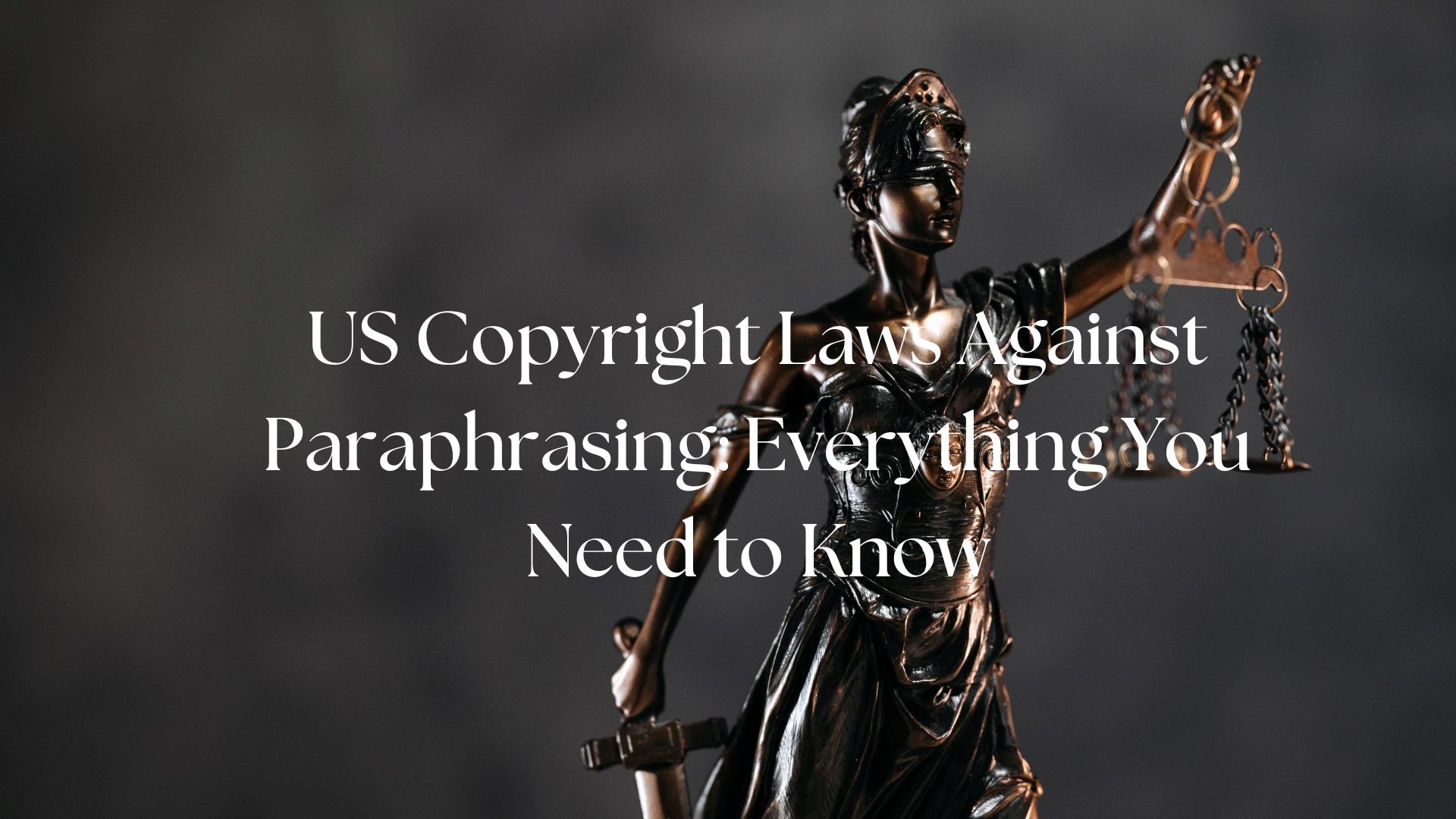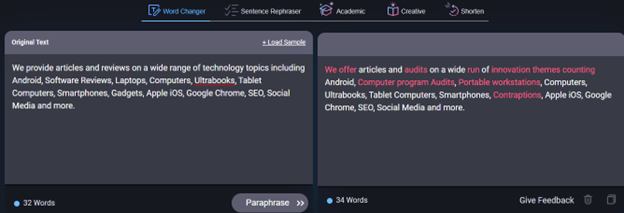Contents of this Post
ToggleFor the longest time, it was thought that paraphrasing a piece of content could rid it of plagiarism and copyright issues. That’s not the case anymore, though, as the US has made new laws for paraphrasing a piece of copyrighted content.
These laws forbid people from paraphrasing and using content that has copyright protection. In simple words, copyright is the legal right of an owner to publish, distribute, and market their intellectual property. Any person other than themselves cannot do it unless they get legal permission from the owner.

If you’re someone who’s unfamiliar with the copyright laws against paraphrasing, then keep reading, as we’re about to discuss some of them in this article. But before we get into that, let us tell you what paraphrasing exactly is.
What is Paraphrasing?
Paraphrasing involves altering the structure and wording of a text while maintaining its original meaning. It’s often done to increase the clarity of a text or remove plagiarism from it.
According to the Cambridge online dictionary, the definition of paraphrasing is “To express the same idea with different words, often humorously or more simply to clarify.”
You can paraphrase a text by using synonyms, altering its sentence structures, and shortening entire phrases into a single word. For example,

It can be done practically by using a tool to paraphrase online content.
Now that you know what paraphrasing is, let’s take a look at the laws prohibiting you from doing it on content that is copyrighted.
What are the Laws Against Paraphrasing Copyrighted Content?
The Copyright Law
The first one is obviously going to be the copyright law itself. It is the law in the US that treats the written content of a person as their property and protects its authorship. The work of the author cannot be used by any other whatsoever. It also prohibits paraphrasing it since the original ideas used in the whole text are someone else’s property, too.
Whenever someone writes a piece of text, they become its author and sole proprietor. Publishing or distributing it will solely be up to them, and no one else can copy it.
Suppose someone else does decide to copy and use that content in their work without the author’s permission, even by paraphrasing it. They can face copyright infringement. However, it’s important to remember that the protections provided by this law have limits.
The copyright law’s protection for works created on or after January 1, 1978, lasts for the author’s lifetime plus 70 years after their death. Any person caught paraphrasing and publishing it without permission before this time can face a penalty in the form of a heavy fine or even a lawsuit, depending on the severity of the case.
The PIPA Law
The second law in the US that prohibits you from paraphrasing a piece of copyrighted content is the PIPA law. It stands for “Personal Information Protection Act.” This law provides enhanced protection from rogue sites that steal and paraphrase content from around the world.
The United States Department of Justice is authorized to seek a court order against websites that paraphrase copyrighted content by this law. The law states that search engines such as Google will completely remove access to any website that is solely dedicated to infringing activities.
Apart from this, the PIPA law is also applicable to private organizations and universities. It is applied to ensure that no student paraphrases and uses others’ content in their academic work. However, it requires an institute to register itself under the act if it wants to apply this law on its premises.
The SOPA Law
The third and last copyright law against paraphrasing in the US is the SOPA law. It stands for “Stop Online Piracy Act”. It was first proposed by the United States parliamentarian “Lamar S. Smith.”
The primary purpose of this law was to expand the authority of the content owner and increase their ability to fight against copyright infringement and paraphrasing issues. Its goal was to crack down on websites providing pirated and paraphrased content to users.
The law is split into two parts. The first part is for owners of intellectual property rights who want compensation because their work was damaged either by paraphrasing or piracy.
The second part focuses entirely on the penalties for people who paraphrase, upload, or publish copyrighted work through their website or platform.
To provide clarification, let us present an example. Suppose an individual has shared a rephrased version of a blog post that is protected by copyright on their website. The copyright holder has the power to issue a takedown notice to Google. The Google team will then examine and confirm the notice before eliminating the rephrased content from the search engine results pages.
Conclusion
Paraphrasing a piece of content protected by a copyright can lead to penalties and legal trouble. In this article, we’ve discussed some of the laws in the US that prohibit you from rephrasing a piece of copyrighted content.
